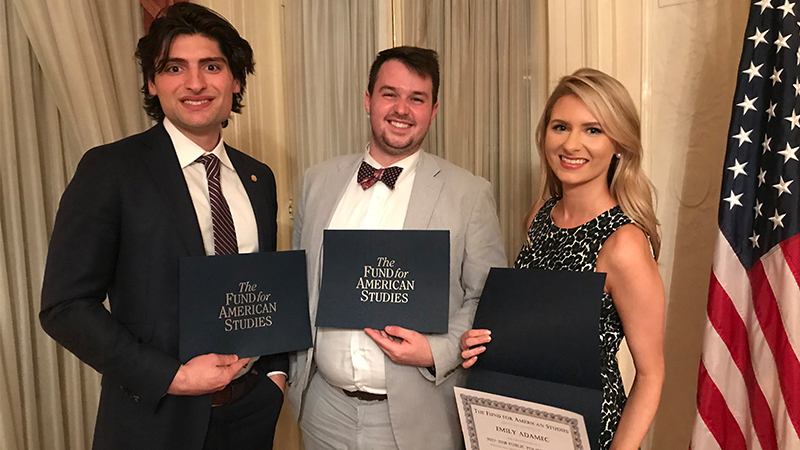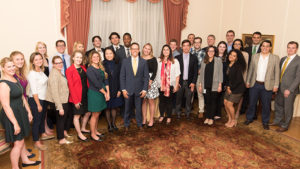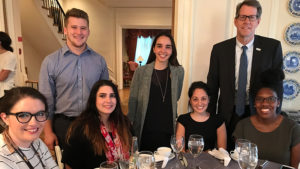
This past year marked not only the 50th anniversary of TFAS but also the 10th anniversary of our Public Policy Fellowship, a year-long academic and networking program established in 2008 as a means for outstanding alumni working in public policy to continue their TFAS studies.

Reflecting on both of these anniversaries, TFAS made the exciting decision to reach and teach even more working professionals by expanding the Public Policy Fellowship program beyond the TFAS Alumni Network. For the first time, non-TFAS alumni were invited to apply for the 2018-19 program, opening the TFAS experience up to those who missed out on attending a program as a college student.
The 2018-19 Fellows will be announced at a welcome reception at TFAS Headquarters in Washington, D.C. on Sept. 12, 2018. This cycle’s curriculum will center around, “The Experiment in Self-Government,” examining the republican principles espoused by America’s Founders and “whether societies of men are really capable or not of establishing good government from reflection and choice.”
The decision to expand the Fellowship comes on the heels of a successful 2017-18 program that fostered professional development and timely debates on how best to improve public policy.
Fellowship Coordinator Brenda Hafera said, “The opportunity for citizens to disagree in a free manner enables them to refine their own beliefs and opens up the possibility of consensus, which is indispensable for the success of a democratic society.” One of the goals of the Fellowship is to foster such discussions while still respecting the rules of civility.
2017-18 Fellow Danielle Hamel (IBGA 12) noted, “When I was alerted to the application deadline for TFAS’s Public Policy Fellowship, I quickly hurried to get all the required documents in as the opportunity seemed too valuable not to explore. As I was accepted and began to develop relationships with the fellows and educators alike, I was heartened by the common respect and understanding conveyed by those with antithetical political beliefs.”

Throughout the year, Fellows engaged on such issues as criminal justice reform with Molly Gill, vice president of Policy for Families Against Mandatory Minimums; energy policy with Myron Ebell, director of the Center for Energy and Environment at the Competitive Enterprise Institute; and the future of the Supreme Court with TFAS Legal Studies Institute’s Board of Visitors member Ilya Shapiro, senior fellow in constitutional studies at the Cato Institute and editor-in-chief of the Cato Supreme Court Review.
Over two extended retreats, they discussed America’s first freedoms and delved into free-market economic theory with Dr. Anne Bradley, the George and Sally Mayer Fellow for Economic Education and TFAS academic director. By participating in these conversations, Fellows were not only able to network with other young professionals but also forge meaningful friendships.
2017-18 Fellows Danielle Hamel and Amanda Munger (IPJ 10) have differing views on many issues but did not find that those disagreements inhibited the formation of their friendship. As Amanda remarked, “When I signed up for the TFAS Fellowship, I thought this would be a great chance to connect with people on an intellectual level about policy issues we don’t see eye to eye on. And it was. But, it was an opportunity to connect on a personal level as well. I am so happy I have an incredible new friend in Danielle, who will spend hours talking with me about everything from what is happening in the world to what is happening in our lives.”
TFAS is excited to facilitate such friendships across networks as we expand our reach and welcome even more Fellows to the TFAS family during our welcome reception on Sept. 12.

